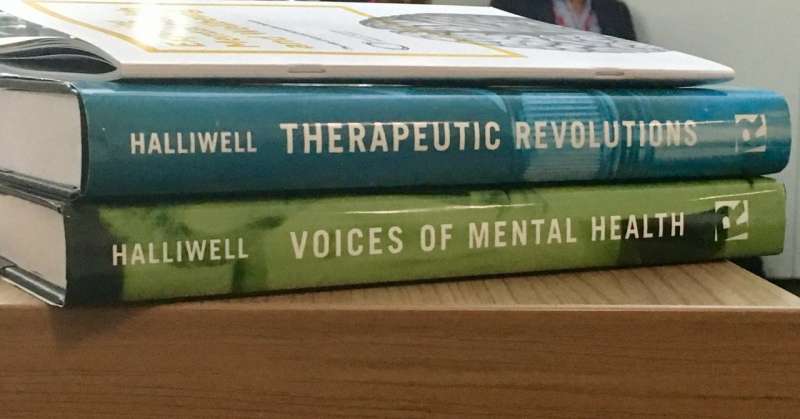Voices of mental health

Research by University of Leicester academic Professor Martin Halliwell has broken new ground in deepening our understanding of the history and politics of mental health.
The Professor of American Studies and Head of the School of Arts has published a major new book to coincide with World Mental Health Day: Voices of Mental Health, Medicine, Politics, and American Culture, 1970–2000.
Examining mental health in the United States in the late twentieth century, the book interweaves three stories: the rising political prominence of mental health since 1970; shifting medical diagnostics at a time when activists, advocacy groups, and public figures were speaking out about the needs and rights of patients; and the concept of voice in literature, film, memoir, journalism, and medical case study that connects the health experiences of individuals to shared stories.
In doing so, Professor Halliwell breaks new ground in understanding the place, politics, and trajectory of mental health from the moon landing to the millennium.
He said: "I am thrilled to publish this second volume of a trilogy with Rutgers University Press that together will chart a cultural history of mental health from World War II to the present. Whereas the first volume, Therapeutic Revolutions, analysed therapeutic practices from the mid-1940s to the end of the 1960s, Voices of Mental Health looks at a thirty-year period, spanning the Nixon and Clinton presidencies, when mental health became heavily politicized – a period that set in train social and cultural trends that are playing out in the United States today."
To complete this trilogy, Professor Halliwell is beginning work on the third volume that examines the relationship between biotechnology and mental health during the period we are currently living through.
Dr Corinne Fowler, Research Environment Director for the College of Social Sciences, Arts and Humanities, said of Voices of Mental Health: "This is an expansive book, underpinned by substantial research. It draws from a vast array of sources - clinical case studies, literature, cinema, political speeches, music, art and much more - to understand subtle and overlooked shifts in public health culture. Its organising concept is 'voice', which is brilliantly elaborated and nuanced in relation to race, political discourse, health advocacy and the women's movement."
The publication of the book coincides with a significant new report, "Exploring Mental Health and Wellbeing," published by the Arts and Humanities Research Council (AHRC), which highlights the important role that arts and humanities based research can play in helping to address complex issues around mental health.
The AHRC report brings to life a wealth of case studies that are contributing to the mental health debate and opportunities for research on both individual and collaborative levels.
Professor Halliwell, who is a member of the Research Council Mental Health Expert Group and the AHRC's Science in Culture advisory group, said: "Arts and humanities subjects are essential for understanding the complexity and the real-life impact of mental health conditions as they affect both individuals and those around them.
"They offer a breadth of perspectives, skills and techniques that can reveal a deeper understanding of the causes and experiences of mental illness, and can help to better comprehend both social connectedness and fragmentation for the communities that face it."
Through flexible responsive funding and a targeted national strategy, the AHRC, along with other the research councils, will continue to support new research to help deepen understanding of and enrich the support available for those with mental health problems and those that care for them. The research councils will ensure that the profile of mental health research is raised, including a networking event at the Imperial War Museum on 31 October.
On a regional level, Professor Halliwell is a member of the Action on Communities of Health and Equality (ACHE) group that works on areas including mental health that concern vulnerable populations in society, with the aim of understanding the lived experiences of these communities and in improving health and welfare support.

















